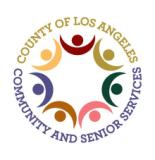What would you like to do today?
Programs and Services
A geriatric assessment evaluates an individual’s physical, mental, and psycho-social status. The process often includes family members and other important people in an individual's life.
What is a Geriatric Assessment?
A geriatric assessment is an evaluation conducted by several health professionals. A geriatric assessment considers the whole individual rather than diagnosing a set of presenting physical symptoms. Such an assessment considers the social, physical, and emotional needs of an older adult. A geriatric assessment can be one tool to help an older adult keep living independently because it evaluates how well a person functions in day-to-day life.
How do I get a Geriatric Assessment?
Geriatric assessments may be performed by a Geriatrician, a Geriatric RN, a Geriatric Social Worker, or Case Manager along with the individual's primary care provider and family members. Before the assessment, you and family caregivers may be asked to complete a questionnaire. Your provider may ask that you bring all prescriptions and over the counter medications with you to the appointment. Prior to your visit, think about your goals and priorities. Make a list of questions you have about any changes you are experiencing in your health, your body, your habits, or your feelings.
When you arrive, plan to spend up to several hours with your provider or team of health care professionals. Much of the geriatric assessment may be spent in conversation about your life and lifestyle and daily routine. You may be asked about such things as a fear of falling or whether you can get up from the floor if you do fall. Your provider may examine your footwear or ask you to memorize a short list of items. Expect to be asked questions about family or friends who could help you or whether you have a safe place to go during an emergency or disaster. Your assessment may also include routine vision and hearing screenings.
During a geriatric assessment the need for services and follow-up is determined, and a coordinated plan is developed to meet those needs. Usually, a geriatric assessment includes one or more visits and a summarized, written report that may include recommendations about lifestyle, medication, nutrition, exercise, or other areas.
What services are generally offered?
A routine assessment generally includes:
- • evaluation of the individual's level of physical, mental and social functions,
- • a depression screening,
- • a survey of your home environment for safety features, and
- • a nutritional assessment.
A geriatric assessment may also include a review of prescription and over-the-counter medicines being taken regularly. Results are compiled in a detailed, written report or care plan. Some common areas covered in a geriatric assessment include:
- • balance and gait
- • vision
- • hearing
- • depression
- • medications
- • activities of daily living and instrumental activities of daily living
- • incontinence
- • depression
- • social engagement
- • nutrition
- • pain
